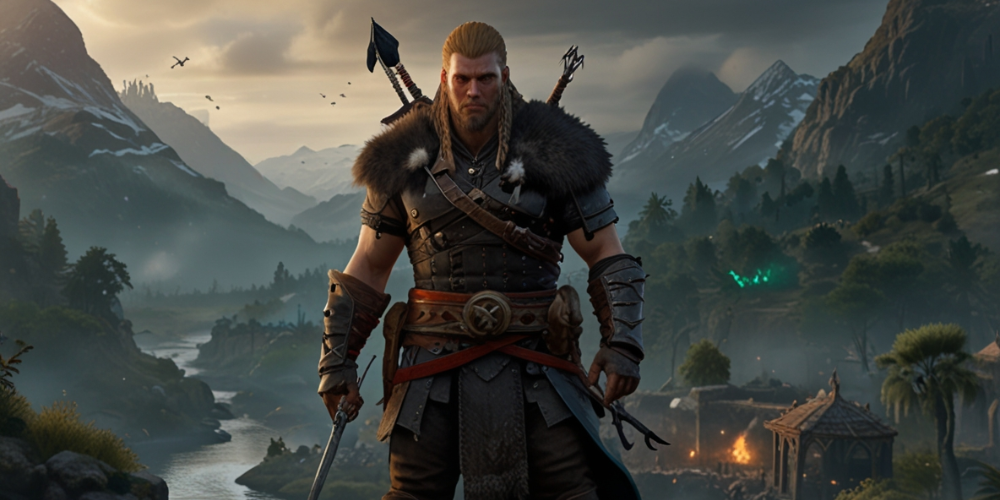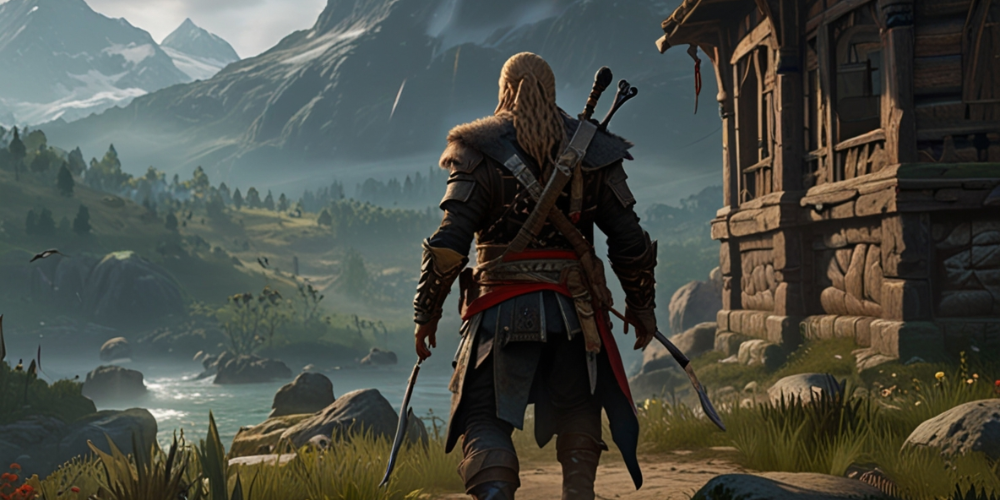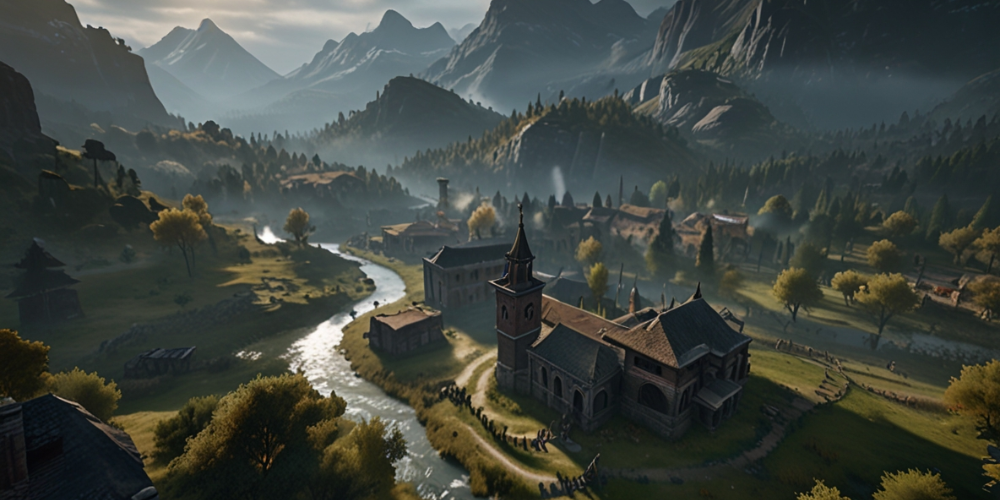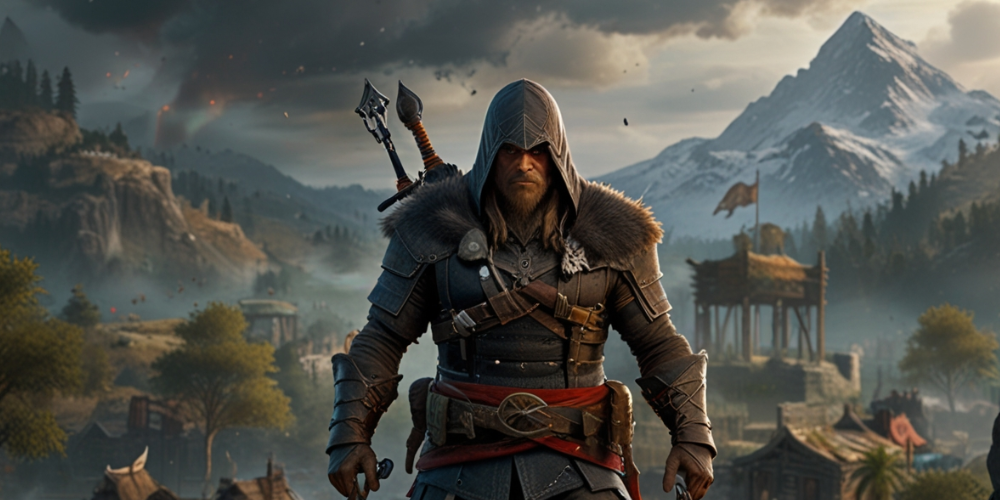Assassin's Creed Valhalla - Historical Representation in Gaming
- Aug 06, 2024
- 1042

As I embarked on my adventure in Assassin's Creed Valhalla, I was instantly drawn into a world that painted a vibrant picture of the Viking Age. The developers successfully breathed life into the historical landscape of 9th-century England and Norway, capturing a time replete with battles, cultural exchanges, and significant transformations. The level of detail presented was not just visually stunning but intellectually engaging as well.
The Viking Culture
From the moment I set foot in the meticulously crafted villages and settlements, I felt immersed in the rich tapestry of Viking culture. Valhalla presents the Norsemen not merely as raiders but as complex individuals with their own intricate social structures, beliefs, and customs. As I interacted with characters and navigated through their lives, I found great depth in their traditions, mythology, and values. The game succeeded in portraying both the glory of conquest and the hardships faced by these fearless warriors.
The Role of Mythology
As I ventured deeper into the story, mythical elements were woven seamlessly into the fabric of my journey. The rich tapestry of Norse mythology, featuring a diverse array of deities and legendary narratives, significantly influenced the development of characters and their motivations. Encountering figures like Odin and Freyja added a layer of intrigue, urging me to consider how belief systems can significantly influence human behavior and decision-making. This infusion of mythology elevated the narrative from merely historical storytelling to a broader exploration of humanity.

Accurate Historical Events
One of the aspects I appreciated was how Valhalla incorporated real historical events without losing sight of the narrative flow. The game's setting takes place amidst the Viking incursions into England in the late 9th century. This era, marked by significant cultural and political shifts, was faithfully recreated. I encountered significant historical figures, such as King Alfred, whose nuanced portrayal challenged the traditional, one-dimensional view of a 'hero' or 'villain'.
The Geography of England and Norway
The landscapes I traversed were not just visually pleasing; they echoed the geography of the time. Valhalla's representation of Norway, with its fjords and mountains, along with England's lush countryside and fortified towns, was a testimony to the developers' commitment to authenticity. The attention to environmental details helped establish a sense of place that made my experience feel genuine.
Social Structures and Power Dynamics
Throughout my journey, I encountered various factions and clans, each reflecting the social hierarchies prevalent in Viking society. The tension between different groups illustrated the complex power dynamics, from tribal allegiance to feudal lords. I could see how these interactions shaped historical narratives, emphasizing the struggle for power and influence, aligning with real events of that turbulent time.
Gender Representation and Women’s Roles
What struck me most was the inclusion of strong female characters, emphasizing the multifaceted roles women played in Viking society. Eivor, my character, exemplified this by operating as both a fierce warrior and a wise leader. Her relationships with other women, including legendary figures like the shieldmaiden, reflected not just combat prowess but also the political acumen women employed in their quest for agency.

Trade and Cultural Exchange
As I gathered resources and forged alliances, I learned about the trade routes that existed during the Viking Age. The game depicted the intermingling of cultures, showcasing how Vikings traded not only in goods but also in ideas. This cultural exchange was represented through art, technology, and fundamental philosophies, thus enriching my understanding of how these diverse societies interacted and evolved.
Paganism vs. Christianity
The tension between pagan beliefs and the encroaching presence of Christianity provided a compelling narrative thread. The conflict was evident in both dialogue and gameplay mechanics as I was faced with decisions that reflected these diverging worldviews. This religious dynamic highlighted the broader historical context of conversion, demonstrating that belief systems are not just personal but are deeply intertwined with community identity.
The Impact of Warfare
As a player, I engaged in various battles and raids which were central to the Viking way of life. Each conflict I faced was not just a representation of violence; it was a reflection of broader historical circumstances. The game challenges me to think critically about the nature of warfare and its consequences, not just for victors but for the affected populations and how history remembers them.
The Integration of Trade Systems
While exploring trade dynamics, I encountered a well-engineered trading system that allowed me to gather resources from various parts of the world. This system mirrored the economic realities of the time, emphasizing the Vikings’ adeptness at navigating trade networks. Through this mechanic, I gained insight into how economic factors drove exploration and conquest, reinforcing the idea that history is often shaped by commerce as much as by conflict.

Environmental Elements in Gameplay
Every element of the environment, from weather conditions to seasonal changes, affected gameplay and narrative pacing. The immersive world I traversed responded dynamically to my actions, reflecting the unpredictability of historical events. This aspect reminded me of the historic interplay between humanity and nature, showcasing how the environment influences survival and societal development.
Language and Communication
As I navigated through various regions, I noticed the inclusion of different languages and dialects reflecting regional affiliations. This linguistic diversity added an authenticity that deepened my immersion. It also posed challenges in understanding and negotiation, reinforcing the idea that communication played a pivotal role in the social and political landscape of the time.
Character Development and Historical Figures
Valhalla’s portrayal of historical figures was not just as static characters in my journey but as rich, multifaceted personalities. Each individual I encountered had their unique motivations, backstories, and complexities. This depth allowed me to engage meaningfully with their narratives, encouraging me to consider the human experiences behind historical events.
Historical vs. Fictional Narrative
Throughout my journey, the blend of historical facts and fictional narratives created a compelling tension. The developers illustrate that while history provides a foundation, the stories built upon it can take creative liberties. This duality prompted me to think about the nature of storytelling and how myths entwine with history to shape cultural identities, forming a dialogue between fact and fiction.
The Role of Community and Legacy
In Valhalla, community played a central role in shaping both personal destiny and broader societal outcomes. I witnessed firsthand how individual actions could influence the fate of settlements and clans, reflecting a deep understanding of legacy—a theme that resonates throughout history. Each decision I made had repercussions, forging a connection between my character and the world around me, akin to the interconnectedness seen in historical narratives.
The Soundscape of History
The audio design of Valhalla deepened my experience. Traditional music and ambient sounds crafted an atmosphere that transported me to the Viking Age. The rousing battle cries, the rhythmic sounds of oars on water, and the lively chatter in villages all contributed to a sensory immersion that brought history to life. Music, as a historical element, not only enriched gameplay but evoked emotions reminiscent of the past.
Final Reflections on Historical Representation
Assassin's Creed Valhalla offered me an intricate web of history, culture, and mythology that transcended basic gaming. The blend of immersive storytelling with historical accuracy encouraged me to think critically about the representations of the past in modern narrative forms. As I navigated through the challenges of this stunning world, I gained not only a greater appreciation of the Viking Age but an understanding of how history continues to shape our narratives today.